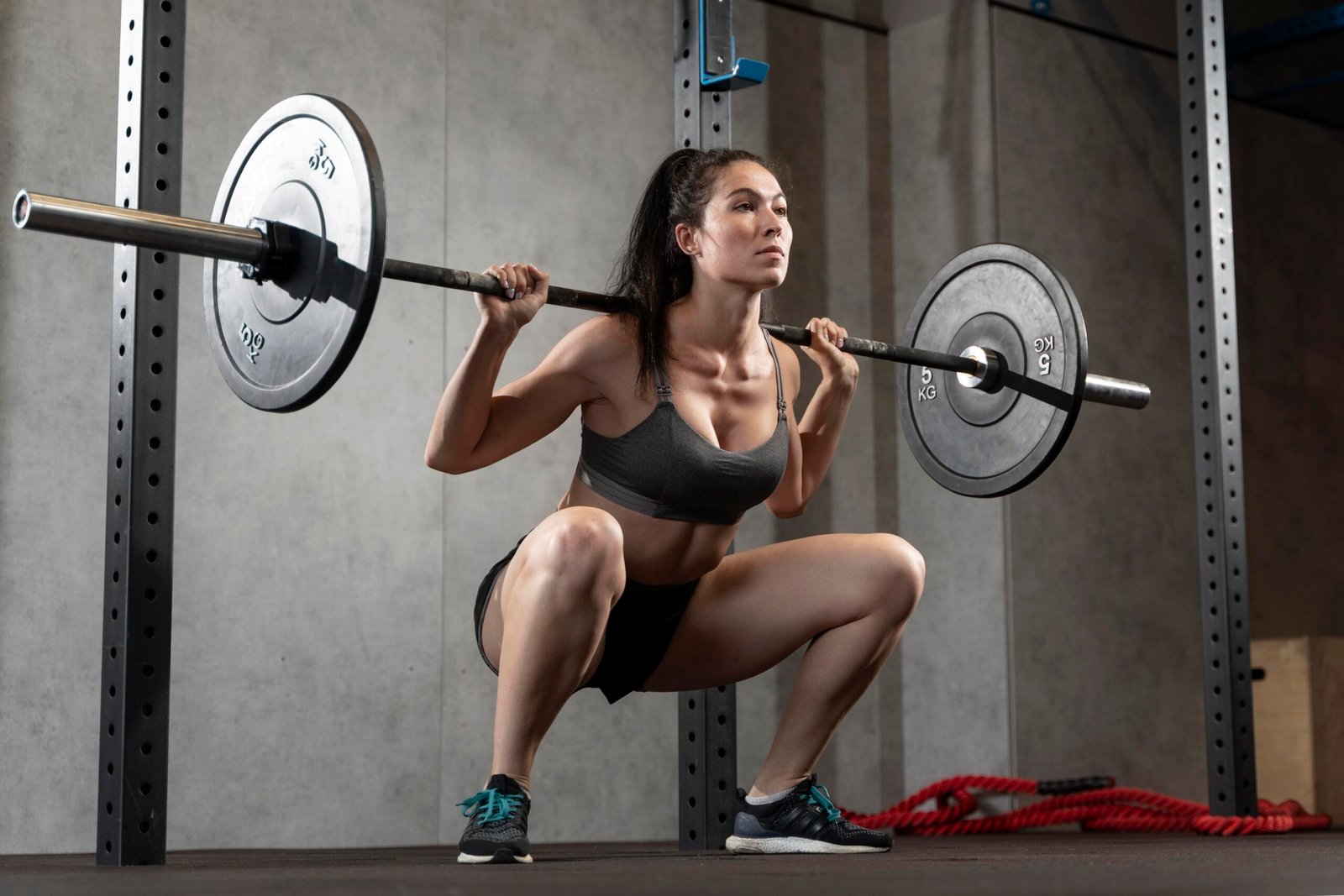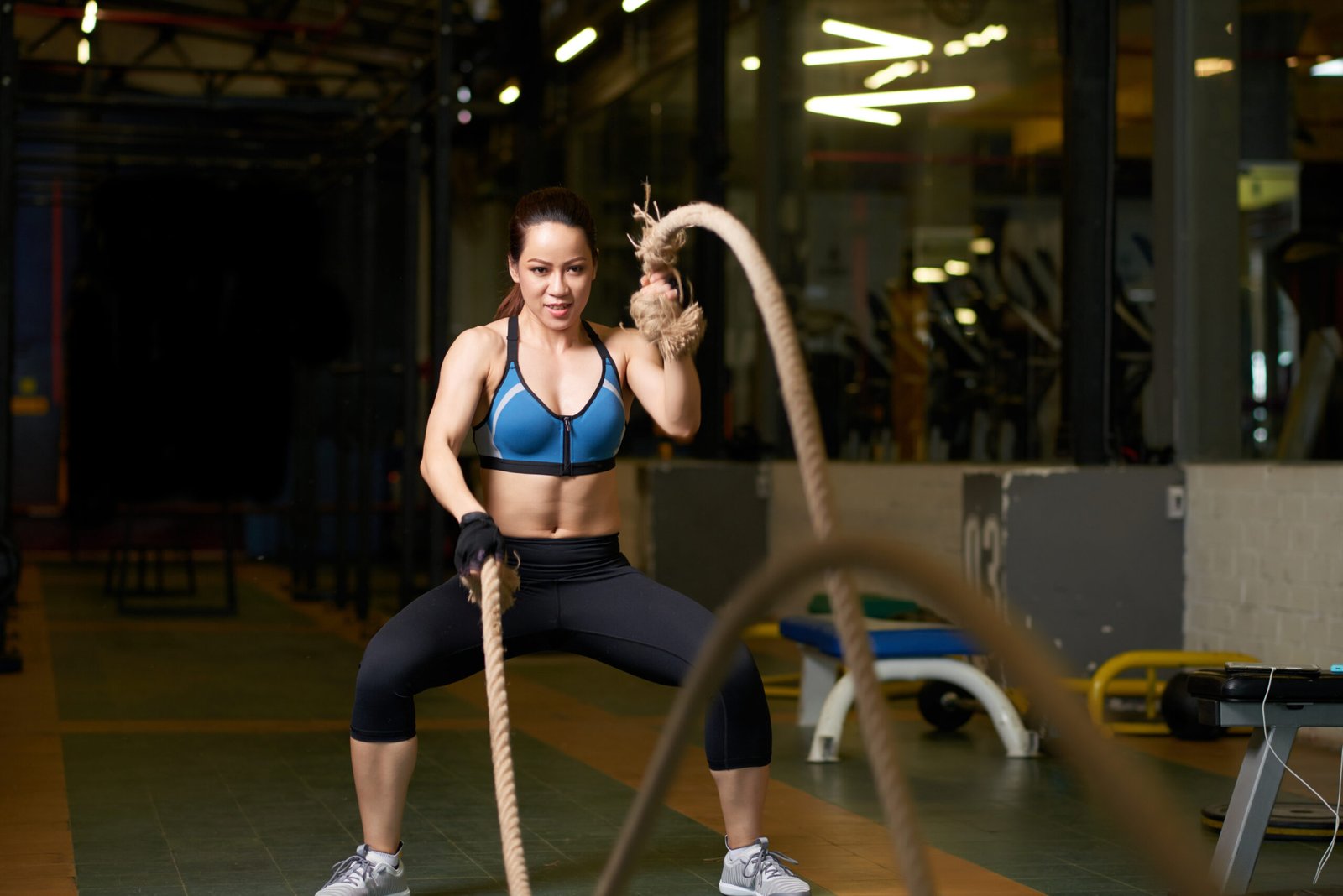Most Reliable Supplements for Crossfit Athletes. In the demanding world of CrossFit, where athletes push their physical and mental limits daily, optimizing performance and recovery is paramount. Beyond rigorous training and meticulous nutrition, many CrossFitters turn to dietary supplements to gain an edge, enhance their capabilities, and accelerate their recuperation. But with a dizzying array of products flooding the market, discerning which supplements genuinely deliver on their promises can be a challenge. This article delves into the science, expert opinions, and real-world experiences of CrossFit athletes to uncover the supplements that have earned their trust and become staples in their pursuit of peak performance.
We will explore the most commonly used supplements, examining their mechanisms of action, the scientific evidence supporting their efficacy, and how they contribute to the unique demands of CrossFit training. From foundational aids for muscle growth and strength to specialized compounds for endurance and recovery, understanding these supplements can empower athletes to make informed decisions on their journey to becoming fitter, stronger, and more resilient.
The Cornerstone of Performance: Protein
Protein stands as an undisputed champion in the nutritional arsenal of any athlete, and for CrossFitters, its importance is amplified by the high-intensity, varied nature of their training. Far from being merely a macronutrient for energy, protein is the fundamental building block for virtually every system in the human body. Muscles, bones, skin, organs, hair, enzymes, immune cells, and even neurotransmitters are all constructed from proteins. These complex structures are meticulously assembled from smaller units known as amino acids.

When protein-rich foods are consumed, the digestive system meticulously breaks them down into their constituent amino acids. These amino acids are then absorbed and reassembled by the body to create the specific proteins required at that moment, whether it’s for repairing muscle tissue post-workout, forming robust bones, generating antibodies to combat infection, or producing enzymes vital for digestion.
The human body is a perpetually active machine, constantly breaking down and remodeling tissues, synthesizing hormones, producing enzymes, creating immune antibodies, and generating neurotransmitters. This continuous demand for amino acids necessitates a consistent and frequent supply of dietary protein, as the body cannot store individual amino acids.
For individuals engaged in regular physical activity, particularly the demanding, high-intensity training characteristic of CrossFit, protein requirements are substantially elevated compared to standard dietary recommendations. While the Recommended Dietary Allowance (RDA) for protein is a mere 0.8 grams per kilogram of body weight per day—a quantity barely sufficient to prevent deficiency—athletes typically require a range of 1.6 to 2.2 grams per kilogram per day. This higher intake is essential to adequately support muscle repair, facilitate recovery, bolster immune function, and optimize overall performance.
Protein needs can escalate even further in specific circumstances, such as for older individuals, those in a calorie deficit, athletes undergoing high-volume training, or those aiming to preserve lean muscle mass during periods of weight loss. The timing of protein intake also plays a significant role; distributing protein evenly across meals, with each meal containing a minimum of 30 grams, and ensuring a protein-rich meal post-workout, can significantly enhance muscle protein synthesis and improve recovery outcomes.
Expert Insights and Athlete Perspectives
CrossFit.com, the official platform for the sport, underscores the critical role of protein, stating:
“Protein is the structural and functional foundation of the human body. Unlike carbohydrates and fat, which are primarily used for energy, protein is used to build, repair, and regulate nearly every system in the body.”
This sentiment is echoed by top athletes. CrossFit champion Brooke Wells, for instance, integrates protein powder into her daily regimen, using it to supplement her diet and ensure she meets her nutritional needs, especially given her high carbohydrate intake necessary to fuel intense training sessions. She emphasizes that protein powder helps to “round out her nutritional needs”. This practical application by elite athletes reinforces the scientific understanding of protein as a fundamental component of a high-performance diet.
Powering Performance: Creatine Monohydrate
Creatine monohydrate stands as one of the most extensively researched and scientifically validated supplements available to athletes, particularly those engaged in high-intensity, intermittent activities like CrossFit. Its efficacy in enhancing strength, power, and muscle mass is well-documented, making it a cornerstone for many CrossFitters seeking to maximize their performance.
The primary mechanism of creatine involves increasing the body’s intramuscular stores of phosphocreatine. Phosphocreatine plays a crucial role in the rapid regeneration of adenosine triphosphate (ATP), which is the direct energy source for muscle contractions, especially during short bursts of intense exercise. By augmenting these energy reserves, creatine enables athletes to perform at a higher intensity for longer durations, leading to significant performance benefits.
Key benefits of creatine monohydrate for CrossFit athletes include:
•Enhanced Strength and Power Output: Creatine consistently demonstrates its ability to improve maximal strength and explosive power, allowing athletes to lift heavier weights, jump higher, and generate more force during dynamic movements.

•Increased Lean Muscle Mass: By facilitating higher training volumes and promoting muscle protein synthesis, creatine contributes to notable gains in lean body mass over time.
•Improved High-Intensity Exercise Performance: It helps to buffer lactic acid accumulation and delay the onset of fatigue, which is particularly advantageous in the repetitive, high-effort nature of many CrossFit workouts.
•Accelerated Recovery: Research indicates that creatine can aid in post-exercise recovery by reducing muscle cell damage and inflammation, allowing for quicker bounce-back between demanding training sessions.
•Potential Cognitive Benefits: Emerging evidence suggests that creatine may also offer cognitive advantages, including improvements in memory and brain function, which can be beneficial for maintaining focus and executing complex movements during workouts.
Expert Consensus and Athlete Endorsement
The scientific community widely recognizes creatine monohydrate as a safe and effective ergogenic aid. Organizations such as the International Society of Sports Nutrition (ISSN) have issued position stands affirming its benefits for exercise performance and body composition. Typical supplementation protocols often involve a loading phase (e.g., 20 grams per day for 5-7 days) to rapidly saturate muscle stores, followed by a maintenance phase of 3-5 grams per day. However, a consistent daily dose without a loading phase is also effective over a longer period.
CrossFit champion Brooke Wells highlights creatine as a top-tier supplement in her daily routine, emphasizing its role in muscle, strength, and even longevity. She notes its widespread accessibility, affordability, and broad spectrum of benefits, aligning perfectly with the recommendations from medical professionals, personal trainers, and exercise science experts. The consensus among both scientific experts and elite athletes firmly establishes creatine monohydrate as a highly valuable supplement for CrossFitters.
Buffering Fatigue: Beta-Alanine
Beta-Alanine is a non-essential amino acid that has gained significant popularity among CrossFit athletes for its ability to enhance endurance and delay the onset of fatigue during high-intensity workouts. Its primary mechanism of action involves increasing the concentration of carnosine in the muscles. Carnosine acts as an intracellular buffer, helping to neutralize the accumulation of hydrogen ions (H+), which contribute to the acidic environment that causes muscle fatigue and a burning sensation during intense exercise.
For CrossFitters, whose training often involves sustained periods of high-intensity effort, beta-alanine can provide a significant advantage by:
•Delaying Neuromuscular Fatigue: By buffering the acidic environment within muscle cells, beta-alanine allows athletes to maintain a high level of performance for longer durations, enabling them to complete more repetitions or extend their work intervals before succumbing to fatigue.
•Improving Exercise Performance: Scientific studies have consistently shown that beta-alanine supplementation can improve performance in activities lasting between 30 seconds and 10 minutes, a timeframe that encompasses a wide range of CrossFit workouts and metabolic conditioning (Metcon) pieces.
•Increasing Training Volume: The ability to perform more work before reaching exhaustion can lead to greater training adaptations over time, including increased strength, power, and endurance.
Expert Consensus and Athlete Experiences
Research consistently supports the effectiveness of beta-alanine in enhancing exercise performance, particularly in activities with a significant anaerobic component. The typical dosage for beta-alanine supplementation is a daily intake of 2-5 grams. A common, yet harmless, side effect of beta-alanine is a tingling sensation on the skin known as paresthesia, which is a sign that the supplement is being absorbed and is actively contributing to carnosine loading in the muscles.
Many CrossFit athletes have embraced beta-alanine as a key component of their supplement regimen. While some may initially be surprised by the tingling sensation, they often find that the performance benefits, such as the ability to push harder and longer in workouts, far outweigh this minor side effect. The consensus within the CrossFit community is that beta-alanine is a valuable tool for improving endurance and breaking through performance plateaus.
Aiding Recovery: BCAAs (Branched-Chain Amino Acids)
Branched-Chain Amino Acids (BCAAs)—comprising leucine, isoleucine, and valine—are essential amino acids, meaning the body cannot synthesize them, and they must be obtained through diet or supplementation. They have long been popular in the fitness community for their purported roles in muscle protein synthesis and reducing muscle breakdown. For CrossFit athletes, BCAAs are often considered for their potential to:
•Reduce Muscle Soreness (DOMS): Several studies suggest that BCAA supplementation may help alleviate delayed onset muscle soreness (DOMS), the muscle pain and stiffness experienced in the days following strenuous exercise. This is thought to be due to a reduction in exercise-induced muscle damage.
•Support Recovery: By potentially reducing muscle protein breakdown and supporting the repair process, BCAAs may contribute to a quicker recovery between intense training sessions, allowing athletes to maintain a high training frequency and quality.
•Stimulate Muscle Protein Synthesis: Leucine, in particular, is a key signaling molecule that activates the mTOR pathway, a critical regulator of muscle protein synthesis. However, it is important to note that some research indicates that BCAAs alone may not be as effective as a complete protein source (which contains all nine essential amino acids) for maximizing muscle growth, especially if an individual’s overall protein intake is already sufficient.
•Reduce Exercise-Induced Fatigue: BCAAs compete with the amino acid tryptophan for entry into the brain. By reducing the amount of tryptophan that crosses the blood-brain barrier, BCAAs may help to delay the onset of central fatigue during prolonged exercise.
Check also: gym training after 40
Expert Consensus and Athlete Perspectives
The role of BCAAs in an athlete’s supplement regimen is a topic of some debate among experts. While there is evidence to support their role in reducing muscle soreness and aiding recovery, the consensus among many sports nutritionists is that if an athlete is consuming adequate amounts of high-quality protein through their diet, the additional benefits of BCAA supplementation for muscle growth may be limited. In such cases, the body is already receiving a full spectrum of essential amino acids, including BCAAs.
However, BCAAs may still hold value in specific scenarios. For athletes who train in a fasted state, for example, BCAA supplementation may help to prevent muscle breakdown. Similarly, for individuals with lower dietary protein intake, BCAAs can provide a targeted boost of these key amino acids.
CrossFit champion Brooke Wells includes BCAAs in her hydration mix during training, citing their potential for recovery and the added benefit of making her more likely to stay hydrated due to the flavor. She acknowledges the inconsistent research but finds the potential edge to be worthwhile. This highlights a common perspective among athletes: even a small potential benefit can be valuable in the pursuit of peak performance.

The Sunshine Vitamin: Vitamin D
Often dubbed the ‘sunshine vitamin,’ Vitamin D is far more than just a nutrient for bone health; it plays a pivotal role in numerous physiological processes vital for athletic performance and overall well-being. For CrossFit athletes, ensuring adequate Vitamin D levels is crucial for several reasons:
•Bone Health: Vitamin D is essential for the absorption of calcium and phosphorus, which are critical for maintaining strong and healthy bones. This is particularly important for CrossFitters who engage in high-impact movements and heavy lifting, placing significant stress on their skeletal system.
•Immune Function: A robust immune system is paramount for athletes to ward off illnesses that could disrupt training and competition. Adequate Vitamin D levels are strongly linked to a well-functioning immune system, helping athletes stay healthy and consistent in their regimen.
•Muscle Function and Performance: Research suggests a significant correlation between sufficient Vitamin D levels and improved muscle strength, power, and endurance. While the direct ergogenic effect of supplementation in individuals who are already sufficient is still debated, correcting a deficiency can lead to substantial improvements in athletic output and reduce the risk of muscle weakness.
•Inflammation and Recovery: Vitamin D possesses anti-inflammatory properties, which can aid in reducing exercise-induced inflammation and accelerating the recovery process after intense workouts.
Expert Consensus and Athlete Perspectives
Many athletes, especially those with limited sun exposure (due to geographical location, indoor training, or darker skin tones), are susceptible to Vitamin D deficiency. Experts widely recommend testing Vitamin D levels and supplementing when necessary to optimize both health and performance. The Vitamin D3 form is generally preferred due to its superior absorption and bioavailability.
CrossFit champion Brooke Wells includes Vitamin D in her daily supplement stack, recognizing its importance for overall health and longevity. The consensus among both scientific experts and the athletic community underscores Vitamin D’s fundamental role in supporting an athlete’s health, performance, and recovery, making it a vital consideration for any serious CrossFitter.
The Relaxation Mineral: Magnesium
Magnesium is an indispensable mineral involved in over 300 enzymatic reactions within the body, many of which are directly pertinent to athletic performance, muscle function, and overall health. For CrossFit athletes, who often experience significant mineral loss through sweat during intense workouts, maintaining adequate magnesium levels is paramount. Its multifaceted roles include:
•Muscle Function and Contraction: Magnesium is critical for proper muscle contraction and relaxation. It helps regulate calcium levels in muscle cells, preventing cramps, spasms, and involuntary contractions. Adequate magnesium ensures smooth and efficient muscle movement during complex CrossFit exercises.
•Energy Production: As a co-factor in ATP (adenosine triphosphate) production, magnesium is directly involved in the creation of the body’s primary energy currency. This means it plays a vital role in sustaining energy levels throughout demanding workouts and facilitating recovery.
•Nervous System Regulation: Magnesium contributes to healthy nerve transmission and function, which is essential for precise muscle coordination, reaction time, and reducing the risk of neurological fatigue during prolonged physical exertion.
•Bone Health: Alongside calcium and Vitamin D, magnesium is a crucial component for maintaining bone density and strength, offering structural support for athletes subjected to high-impact activities and heavy loads.
•Recovery and Sleep Quality: Magnesium has a calming effect on the nervous system and muscles, which can significantly aid in post-exercise recovery. It helps promote relaxation, reduce stress, and improve sleep quality, all of which are vital for physical and mental regeneration in athletes.
•Reduced Muscle Soreness: Some research suggests that magnesium supplementation may help alleviate muscle soreness and accelerate recovery after intense physical activity, further contributing to an athlete’s ability to train consistently.
Expert Consensus and Athlete Experiences
Given the high demands of CrossFit training and the potential for increased magnesium excretion through sweat, athletes are often at a higher risk of magnesium deficiency. While the direct performance-enhancing effects of magnesium supplementation in individuals who are not deficient are still being researched, ensuring optimal levels is crucial for overall health, preventing deficiencies, and supporting efficient physiological functions. Supplementation can be particularly beneficial for those experiencing muscle cramps, persistent fatigue, or sleep disturbances.
Within the CrossFit community, magnesium is frequently cited as a valuable supplement for improving recovery and sleep. Many athletes report that incorporating magnesium into their routine helps them feel more rested, reduces nocturnal muscle cramps, and allows for better preparation for subsequent training sessions. This anecdotal evidence, combined with its established physiological roles, solidifies magnesium’s place as a key supplement for CrossFitters.
The Anti-Inflammatory Powerhouse: Omega-3 Fatty Acids
Omega-3 fatty acids, specifically eicosapentaenoic acid (EPA) and docosahexaenoic acid (DHA), are polyunsaturated fats renowned for their potent anti-inflammatory properties. In the context of CrossFit, where intense training can lead to significant systemic inflammation and muscle damage, Omega-3 supplementation offers a compelling advantage for recovery and overall athletic health.

The benefits of Omega-3 fatty acids for CrossFit athletes include:
•Reduced Inflammation: Omega-3s play a crucial role in modulating the body’s inflammatory response. By helping to resolve inflammation, they can significantly reduce muscle soreness, accelerate recovery, and potentially lower the risk of overuse injuries that often plague high-volume athletes.
•Improved Joint Health: The anti-inflammatory effects of Omega-3s extend to joint health, which is paramount for CrossFitters performing complex, multi-joint movements and enduring repetitive impact. Healthier joints mean less pain and greater longevity in the sport.
•Enhanced Muscle Recovery: By mitigating exercise-induced muscle damage and inflammation, Omega-3s contribute to a faster and more efficient recovery process. This allows athletes to return to training sooner, with less discomfort, and maintain consistent performance levels.
•Cardiovascular Health: Beyond their direct impact on athletic performance, Omega-3s are well-established for their benefits to cardiovascular health, supporting a strong heart and efficient blood flow, which are foundational for sustained athletic output.
•Potential for Muscle Protein Synthesis: Some emerging research suggests that Omega-3s may positively influence muscle protein synthesis, particularly when combined with resistance training, further supporting muscle growth and adaptation.
Expert Consensus and Athlete Endorsement
Many sports nutrition experts advocate for Omega-3 supplementation for athletes due to their comprehensive benefits in managing inflammation and enhancing recovery. Typical daily dosages often range from 1-3 grams of combined EPA and DHA. It is crucial to select high-quality supplements that are third-party tested to ensure purity and potency, free from contaminants.
CrossFit champion Brooke Wells incorporates a daily fish oil supplement into her routine specifically to protect her joints from the wear and tear of intensive training. Her personal experience, particularly after a significant elbow injury, underscored the importance of prioritizing long-term health and recovery through supplements like fish oil [2]. This highlights how elite athletes leverage Omega-3s not just for immediate performance gains, but for career longevity and sustained well-being in a demanding sport.
A Strategic Approach to Supplementation
For CrossFit athletes, the pursuit of peak performance is a multifaceted endeavor that extends beyond the gym floor. While a well-structured training program and a nutrient-dense diet form the bedrock of athletic success, strategic supplementation can provide a significant edge in optimizing performance, accelerating recovery, and supporting long-term health. The supplements discussed in this article—protein, creatine monohydrate, beta-alanine, BCAAs, Vitamin D, magnesium, and Omega-3 fatty acids—are among the most popular and well-researched options for CrossFitters.
However, it is crucial to remember that supplements are not a substitute for a solid foundation of nutrition and training. The most effective approach is to view them as tools to fill nutritional gaps, enhance specific aspects of performance, and support the body’s recovery processes. Before incorporating any new supplement into their regimen, athletes should conduct thorough research, consult with healthcare professionals or registered dietitians, and consider their individual needs, goals, and dietary habits.
Ultimately, the supplements that CrossFit athletes swear by are those that are backed by scientific evidence, align with their specific physiological demands, and contribute to their overall well-being. By taking a strategic and informed approach to supplementation, athletes can unlock their full potential and continue to push the boundaries of what is possible in the dynamic and challenging world of CrossFit.
